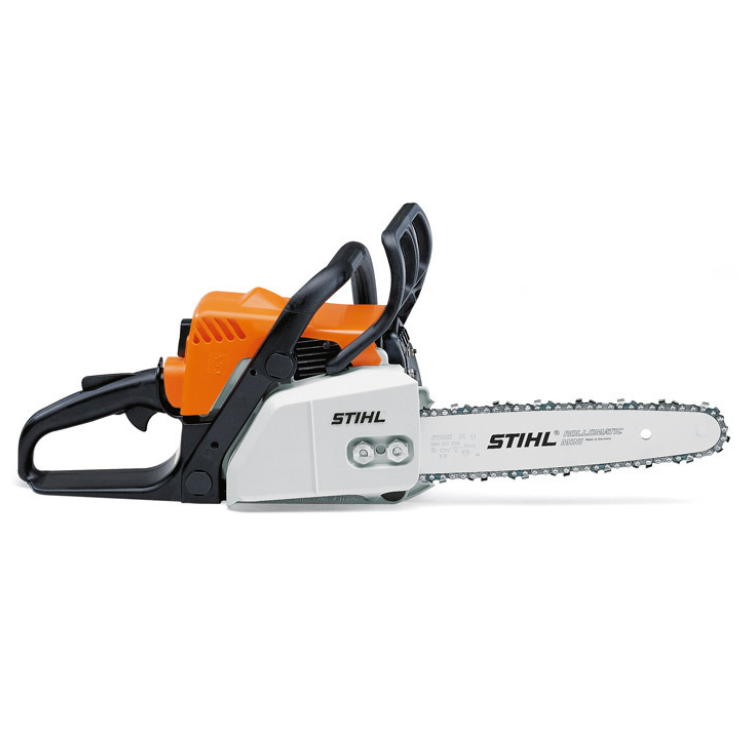In the world of cutting tools, the choice between a traditional hand saw and a powerful chainsaw often boils down to the specific task at hand and the convenience each tool offers. Hand saws have been a staple in woodworking for centuries, while chainsaws have revolutionized the efficiency of cutting tasks, especially in forestry and construction. In this blog, we'll delve into the key differences between a hand saw and a chainsaw, exploring their features, applications, and the factors to consider when choosing the right tool for your needs.
- Operation and Power Source
One of the fundamental distinctions between a hand saw and a chainsaw lies in their operation and power source. Hand saws, as the name suggests, are manually operated tools that rely on human power to cut through materials. They come in various types, including crosscut saws, rip saws, and coping saws, each designed for specific cutting tasks. On the other hand, chainsaws are powered tools that utilize a motor, typically fueled by electricity or gasoline, to drive a chain with teeth that rapidly rotate around a guide bar. This mechanized operation makes chainsaws more powerful and efficient for heavy-duty cutting tasks.
- Precision and Control
When it comes to precision and control, hand saws have the upper hand. The manual operation allows users to have fine control over the cutting speed and direction, making hand saws ideal for intricate woodworking projects that require accuracy. Hand saws are also versatile in terms of the types of cuts they can achieve, from straight cuts to curved or angled cuts. Chainsaws, while powerful, are generally better suited for larger, more straightforward cuts in applications like logging or felling trees.
- Portability and Convenience
Portability is a key consideration, especially for those working in outdoor settings or remote locations. Hand saws are inherently portable due to their manual operation and lack of dependence on external power sources. They are lightweight, easy to carry, and can be used without the need for a power outlet or fuel. Chainsaws, on the other hand, are bulkier and heavier due to the motor and fuel tank. While advancements in technology have led to more compact and lightweight models, they still require fuel or electricity to operate, limiting their portability compared to hand saws.
- Cutting Capacity
The cutting capacity of a tool is a crucial factor, particularly when dealing with large or dense materials. Chainsaws excel in cutting capacity, capable of effortlessly slicing through thick logs or branches with their powerful motor and toothed chain. This makes chainsaws the tool of choice for tasks like tree felling, logging, or cutting large timber. Hand saws, while effective for smaller projects, may struggle with larger or denser materials due to the physical effort required.
- Versatility
Versatility is another aspect where hand saws and chainsaws differ. Hand saws, with their variety of types and blade configurations, are versatile in handling different materials and cutting styles. From cutting wood and plastic to creating detailed joinery, hand saws offer a range of applications. Chainsaws, while unmatched in cutting through large logs, are less versatile in terms of the range of tasks they can perform. They are specialized tools designed for specific applications, such as forestry, construction, or emergency situations.
- Safety Considerations
Safety is paramount when working with cutting tools, and both hand saws and chainsaws come with their own set of safety considerations. Hand saws are generally considered safer due to their manual operation, providing users with more control over the cutting process. However, the physical effort required can lead to fatigue, potentially increasing the risk of accidents. Chainsaws, being powerful motorized tools, require careful handling to prevent accidents. Safety features such as chain brakes, kickback guards, and proper training are crucial when operating a chainsaw.
- Noise and Environmental Impact
Noise levels and environmental impact are factors that should be considered, especially in residential or environmentally sensitive areas. Hand saws produce minimal noise, making them suitable for use in quieter settings without disturbing neighbors or wildlife. They are also more environmentally friendly, as they do not emit pollutants and do not rely on non-renewable resources. Chainsaws, being motorized tools, generate more noise and contribute to air and noise pollution. Electric chainsaws are a more eco-friendly option compared to gas-powered ones, but they still have an impact on the environment.
- Cost Considerations
Cost is a practical aspect that influences the choice between a hand saw and a chainsaw. Hand saws are generally more affordable and have a lower upfront cost. They also don't require ongoing expenses for fuel or electricity. Chainsaws, on the other hand, come with a higher initial investment, and the cost can vary based on factors such as power source, brand, and features. Additionally, ongoing expenses for fuel or electricity should be factored into the overall cost of ownership.
In conclusion, the choice between a hand saw and a chainsaw ultimately depends on the specific requirements of the task at hand and the preferences of the user. Hand saws offer precision, control, and portability, making them ideal for smaller projects and situations where manual operation is preferred. Chainsaws, with their power and cutting capacity, excel in larger-scale applications like forestry, logging, and heavy-duty construction.
When deciding between a hand saw and a chainsaw, consider the nature of your projects, the materials you'll be working with, and the level of precision and control required. Additionally, factor in aspects such as portability, safety considerations, and environmental impact. If you're in the market for a chainsaw, explore reputable Agri-Route to buy chainsaw online - https://agri-route.com/products/mse-250-chainsaw-with-18-guide-bar-saw-chain considering reviews and specifications to find the best fit for your needs.
At Agri Route, we're more than just a supplier. We're your partner in progress, and our goal is to ensure that you can acquire the ideal farming equipment for your specific needs.
For more information, you can visit Agri Route’s website at https://agri-route.com or contact us at 7620144503.






